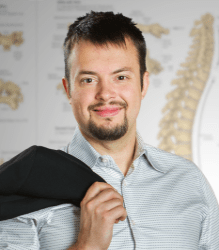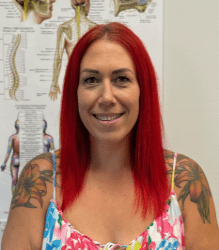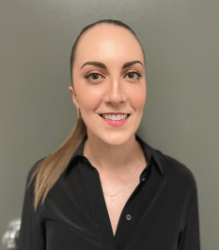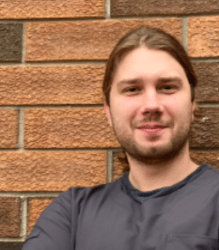Address:
Phone: 780-986-2599
Fax: 780-986-2598
Languages spoken
- English
- Gujarati
- Hindi
- Punjabi
- Russian
- Hebrew
We are offering a variety of virtual care services. Call our clinic to learn more or to book an appointment.
Hours of operation
- Mon:8:00am-7:00pm
- Tue:8:00am-8:00pm
- Wed:8:00am-7:00pm
- Thu:8:00am-8:00pm
- Fri:8:00am-7:00pm
- Sat:Closed
- Sun:Closed
We offer ample free parking. Our facility is wheelchair accessible and has wheelchair accessible parking as well as three complimentary Lifemark parking stalls.
We are located on the ground level, just inside the East entrance doors of the Leduc Recreation Centre.
Clinic information
Clinic information
Acupuncture (Traditional Chinese Medicine)
Cupping Therapy
Intramuscular stimulation (IMS)
Manual Lymphatic Drainage
Visual Rehabilitation
Comprehensive Cognitive Assessment (CBS)
Functional Dry Needling
Work Conditioning/Hardening
Craniosacral Therapy
Myofascial Release Therapy
Psychotherapy
Shockwave Therapy
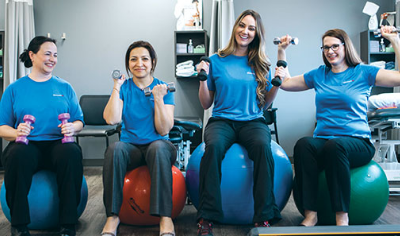
Join our team
Apply nowOur team
Our team
-
PhysiotherapistType Physiotherapist Book onlineLanguages: English, Punjabi, Hindi, Gujarati
-
PsychologistType Psychologist Book onlineLanguages: English
-
Office ManagerType Non-ProviderLanguages: English
-
PsychologistType Psychologist Book onlineLanguages: English
-
PhysiotherapistType PhysiotherapistLanguages: English, Spanish
-
PhysiotherapistType Physiotherapist Book onlineLanguages: English, Hindi, Gujarati
-
ChiropractorType Chiropractor Book onlineLanguages: English
-
AcupuncturistType Acupuncturist Book onlineLanguages: Russian
-
PsychologistType Psychologist Book onlineLanguages: English
-
Massage TherapistType Massage Therapist Book onlineLanguages: English
-
Rehabilitation CoordinatorType Physiotherapy AssistantLanguages: English
-
Occupational TherapistType Occupational TherapistLanguages: English, Ukranian
-
Physiotherapy AssistantType Physiotherapy AssistantLanguages: English
-
PsychologistType Psychologist Book onlineLanguages: English
-
Occupational TherapistType Occupational Therapist Book onlineLanguages: English
-
Occupational TherapistType Occupational Therapist Book onlineLanguages: English
-
Registered Massage TherapistType Massage Therapist Book onlineLanguages: English
-
PhysiotherapistType Physiotherapist Book onlineLanguages: English
-
Rehabilitation CoordinatorType Physiotherapy AssistantLanguages: English
-
PhysiotherapistType Physiotherapist Book onlineLanguages: English, Punjabi, Hindi, Gujarati
-
Registered Massage TherapistType Massage Therapist Book onlineLanguages: English, Hebrew, Russian
Common conditions we treat
Common conditions we treat
-
Arthritis
Arthritis is the classifcation of approximately 200 rheumatic diseases and conditions that affect joints, the tissues that surround the joint, and other connective tissue, causing pain, stiffness and mobility challenges. Assessment and treatment from a physiotherapist and chiropractor may help relieve the pain and stiffness.
-
Carpal tunnel syndrome
Carpal tunnel syndrome is caused by pressure on the median nerve in the wrist and can result in numbness, tingling and pain in the affected hand and arm. It is often the result of repetitive use and strain. Physiotherapy can help alleviate some of the symptoms associated with carpal tunnel syndrome.
-
Dizziness and balance
Dizziness and balance issues can include vertigo, benign paroxysmal positional vertigo (BPPV), nausea, light-headedness, vision issues, motion sensitivity and sensitivity to crowds. They can severely impact quality of life if left untreated. Vestibular rehabilitation can help improve symptoms. -
Frozen shoulder
Frozen shoulder is a progressive condition that often starts with pain in the shoulder joint during basic movement. If the condition is left untreated, pain increases and mobility decreases. Physiotherapists can assess and develop a treatment plan.
-
Hand and wrist pain
Hand, fingers and wrist pain can include symptoms such as tingling, numbness and weakness. The most frequent causes are carpal tunnel syndrome, injury or overuse. An assessment and treatment protocol by a physiotherapist can help.
-
Knee pain
Knee pain can be caused by bursitis, a torn tendon, ACL tear or injury and overuse. It is most frequently the result of osteoarthritis. Physiotherapy can help speed recovery.
-
Low back pain
Low back pain is one of the most common patient complaints. It can result from arthritis, spinal stenosis, scoliosis, sciatica, injury or overuse. An assessment from a physiotherapist or chiropractor can help provide a diagnosis and treatment plan.
-
Muscle sprains and strain
Muscles sprains and strains can result from sport or motor vehicle injuries, overuse or common activity. They can range to mild, moderate to severe requiring more intensive intervention. Physiotherapy and massage therapy can help speed recovery.
-
Neck pain
Neck pain can result from poor posture, injury like whiplash, infection in the lymph nodes or throat, or a herniated disc. Physiotherapy, massage therapy or chiropractic treatment can help improve mobility and pain.
-
Pelvic floor tension
Pelvic floor tension or dysfunction, specifically muscles that are too tight. The pelvic floor muscles are the group of muscles that attach to the front, back and sides of the bottom of the pelvis and sacrum. When the muscles are too tight it can cause pelvic pain, challenges with continence and intercourse (for women). An assessment from a pelvic health physiotherapist can help diagnose and treat the condition.
-
Plantar fasciitis
Plantar fasciitis is one of the most common causes of heel pain. Plantar fasciitis commonly causes stabbing pain, usually occurring with the first steps in the morning. With activity, pain typically subsides, but can return after running or standing up after sitting for a length of time. It most commonly affects people who stand for long periods on hard surfaces, runners, and other high-impact athletes. Treatment from one of our foot care specialists may help to reduce the symptoms and pain.
-
Post-surgery
Complications following surgery can include pain, limited mobility, numbness and emotional issues. An assessment from a qualified physiotherapy along with a detailed treatment plan can help to alleviate post-surgery challenges.
-
Rotator cuff injuries
The rotator cuff consists of four muscles that surround the shoulder blade (scapula), and help to hold the arm bone (humerus) in the shoulder capsule. It is easily injured by sport, repetitive use and common daily activity. Physiotherapists can help diagnose and treat symptoms.
-
Sciatica
The sciatic nerve run from the lower back, through the hip and into each buttock before traveling down each leg. Sciatica is the term used to describe the symptoms when there is pressure on the nerve, causing pain in the lower back, hip or buttock. Physiotherapy or chiropractic services can help relieve sciatic pain.
-
Vertigo
Vertigo is the sensation of feeling off-balance, dizzy or that world around you is spinning. It is most often caused by an inner ear imbalance. An assessment and treatment program from a trained vestibular therapist may help.
-
Vestibular conditions
Coverage options
Virtual care
Virtual Care
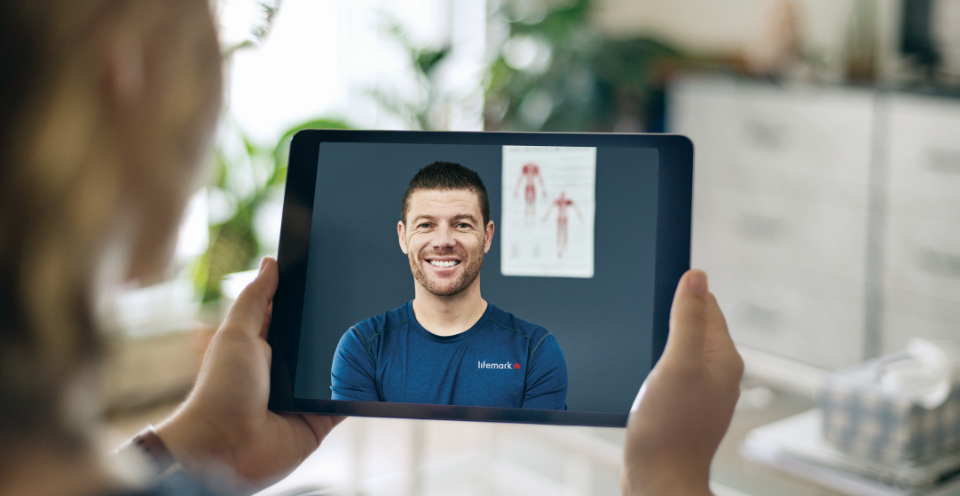 Virtual Care leverages video conference technology to provide services, including online physiotherapy, at a distance. Our video conference platform, built for healthcare professionals, allows you to consult a Lifemark clinician in the comfort of your own home.
Virtual Care leverages video conference technology to provide services, including online physiotherapy, at a distance. Our video conference platform, built for healthcare professionals, allows you to consult a Lifemark clinician in the comfort of your own home.
A clinician can assess or treat you, evaluate your range of motion, recommend exercises, give you advice on pain and pain management and much more.
Services from our specialty programs, such as pelvic health or concussion care, are also available through Virtual Care.
Secure, convenient online services
Virtual Care uses video conference technology to provide services at a distance that are private, secure and easy to use while giving you more flexibility by reducing travel time.
By removing accessibility and mobility barriers, Virtual Care ensures you can receive the care you need. Your privacy is protected through robust policies and safeguards and our clinicians are required to meet the same regulatory and legislative requirements and adhere to their respective Standards of Practice and Code of Conduct as they do for in-person services.
How it works
Before your appointment, you will receive a link to an online appointment session by email or text message. This link will take you to a video conference platform that will allow you to connect with your clinician and discuss your condition with them in real time.
You may be required to review and complete documentation before your appointment, which will be sent to you ahead of time.
For more information about our Virtual Care service, click the button below.
















